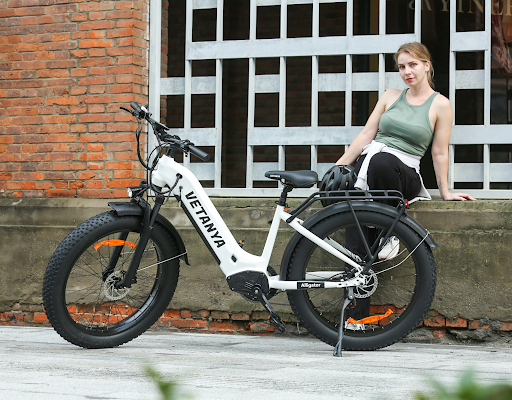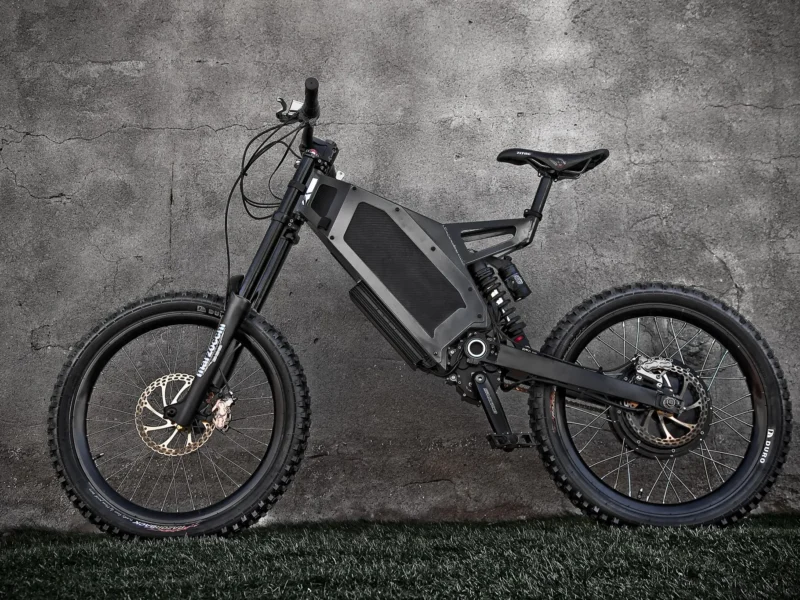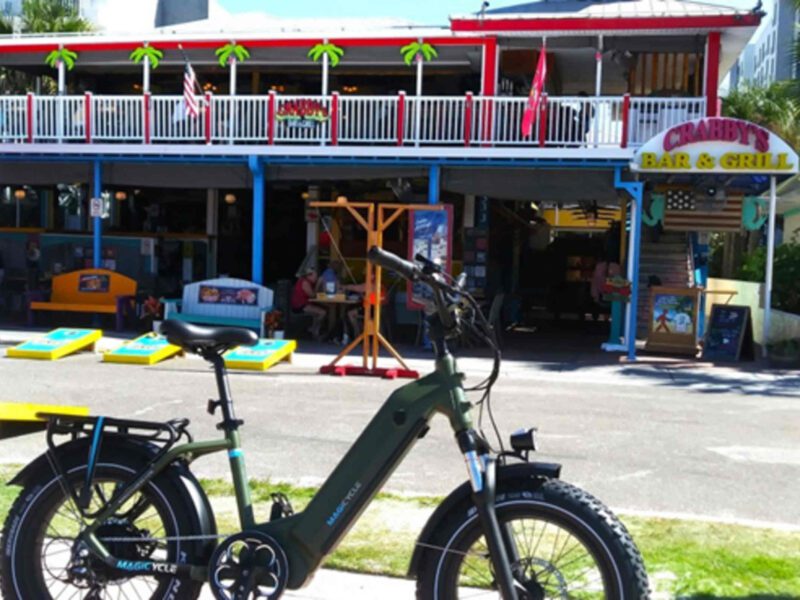
Electric Bikes Vs Traditional Bikes: A Detailed Comparison
Hey everyone! Lets dive into a discussion, about bikes versus bikes. I’m sure you’ve come across bikes before. They have an extra power thanks, to the motor. On the side we have bikes like the ones you may have ridden in your neighborhood. They’re straightforward. Don’t require any charging.
Why are we talking about this issue in the first place? You could wonder if you are considering a bicycle which one is better. Should one invest in a bike? Is a regular bike sufficient? This is what we are to analyze. Let’s move to the details and see what distinguishes each one from another!
What are Electric Bikes?
Have you ever seen someone cruising uphill on a bike without looking tired? Chances are, they’re riding an electric bike. But what exactly is an electric bike?
Picture a regular bike with two cool extras: a battery and a motor. These aren’t super complicated – the motor just helps you pedal, so you don’t have to work as hard. It’s like having a constant gentle push as you ride. And the battery? That’s what powers the motor. You charge it like a phone, and it gives you that extra boost when you’re riding.
Varieties of electric bikes vary in design. Some appear to be normal bicycles, whereas others have a slightly futuristic flair. They’re great when you want to go a bit faster or don’t want to arrive at your destination sweaty. Plus, they’re fun! Something cool about feeling that gentle push helping you along as you pedal.
So, that’s an electric bike for you – a regular bike with a bit of extra oomph to make your ride easier and more fun.
What are Traditional Bikes?
There are also traditional bikes- the kind that has existed for thousands of years. This bicycles are not equipped with any sophisticated motors or batteries. Rather, they feature two wheels, pedals and the ability to drive them forward
Traditional bikes are all about simplicity. You pedal, they move. You stop pedaling, and they slow down. It’s that easy. There is no need to charge anything or learn any new tech. Whether it’s a bike for racing, a sturdy one for mountain trails, or a comfy cruiser for city streets, they all work on the same basic idea: your energy makes them go.
There are styles but the essence of a traditional bike remains consistent. It revolves around the connection, between you, the bike and the road. When riding a bicycle it’s all, about your physical effort – how quickly you pedal navigate those turns and conquer those challenging hills.
So, traditional bikes are the classic, no-extra-frills way to enjoy a ride. They’re about getting active, enjoying the journey, and feeling every bit of the road beneath you.
Comparative Analysis
Let’s put electric and traditional bikes side by side and see how they stack up. We’ll look at a few things to help you determine which one might be your next ride.
Ease of Use:
- Electric Bikes: These are like having a helping hand. The motor makes pedaling not as tough, hence less strenuous even at an upward or long distance ride. Great for a more laid-back ride.
- Traditional Bikes: It’s all you here. You’re the engine, so you get a good workout. Great for exercise and when you want to feel super connected to your ride.
Speed and Efficiency:
- Electric Bikes: Need to get somewhere fast without sweating too much? Electric bikes have the upper hand. That extra boost from the motor means you can go faster without extra effort.
- Traditional Bikes: They are not as quick, but sometimes it is not about the speed. It’s about enjoying the journey and travelling at your own speed.
Physical Exercise:
- Electric Bikes: The exercise will still be there but easier on the knees. A great option on those days when you do not want to get into a vigorous workout.
- Traditional Bikes: Want to get your heart pumping? Traditional bikes are the way to go. They’re excellent for fitness and building up those leg muscles.
Maintenance and Durability:
- Electric Bikes: They need a bit more care. The battery and motor mean there’s more to look after. But don’t worry, it’s not rocket science.
- Traditional Bikes: Generally easier to maintain. Fewer parts mean fewer things that can go wrong. If you’re into DIY, you might even enjoy tweaking and fixing your bike.
Cost Comparison:
- Electric Bikes: Typically, they are expensive to begin with due to the technology that is used. Treat it as an investment if you will use it regularly.
- Traditional Bikes: More budget-friendly. If you’re watching your pennies, these can be a great choice.
That being said and done, it is all about what you seek from a bike. So, do you want some coolness and comfort or the strength of building your own victory over it? Your response to that will guide you towards the perfect bike for yourself.
Environmental Impact
Let’s discuss something important: how these bikes affect our planet. We all care about the environment, right?
- Electric Bikes: These guys are eco-friendly. As they are electrically powered, these do not cause any emissions or air pollution. This is good for the earth! Plus, they can replace car trips, reducing overall pollution.
- Traditional Bikes: They’re the green champions. Zero emissions, always! When you pedal a traditional bike, you’re not burning fuel or using electricity. It’s pure human power.
So, if you’re keen on reducing your carbon footprint and helping Mother Earth, both types of bikes are good choices. But traditional bikes get that extra thumbs-up for being super eco-friendly.
Conclusion
Well folks, we have seen electric or pedal bikes; been quite a journey hasn’t it? Let’s sum things up.
If you love easy rides and no sweat, electric bikes are on your side. They’re like having a reliable wingman to guide you.
However, if you love a good sweat session and happiness of the wind brushing your hair while keeping things minimal and environmentally friendly, traditional bikes are where it’s at. They are like an old friend you can always rely on.
Keep in mind that there isn’t a single solution to this problem. Everything is related to your style, comfort and what suits you most when riding a bike.
Thus, it does not matter whether you prefer the electric hum or manual pedaling; what matters most is that one gets to enjoy cycling. Indeed, it’ s about the process not a result. Happy biking! 🚲
FAQ’s
Are you curious about how e-bikes and regular bikes stack up? Rest assured, we have you covered. Here are some common questions folks often ask:
Q1: Are electric bikes hard to ride?
Not at all! Electric bikes are designed to be user-friendly. The motor gives you a helping hand, making pedaling easier. Think of it as a gentle breeze pushing you forward.
Q2: What is the top speed of an electric bike?
It depends, but the majority of electric bikes achieve speeds from 20 to 28 miles per hour (32-45 kilometers per hour). Some can be even more speedy when the model is involved.
Q3: Does an e-bike require a separate license?
In most places, you don’t have to be licensed if riding an electric bicycle. They are usually considered as normal bicycles. But it is crucial to verify your local regulations because they may differ.(If you want to experience the speed and joy of driving, I must recommend the Vetanya Alligator Fat Tire Step-thru E-Bike to you)
Q4: Is it possible to use an electric bike for a work out?
Absolutely! However, you can choose the strength of your labour. You want a good workout without putting much effort on the motor, simply pedal. This is equivalent to play in easy-hard mode.
Q5: How green are traditional bikes?
Yes, they are. The traditional bikes generate zero emissions and are independent of electricity. But if you want to go for the best environmental choice, a traditional bike is your option.
Q6: Is it costly to keep e-bikes in good condition?
They are more expensive to operate than regular bikes because of its battery and motor. But it is not costly and pays them well in return for the services they render.
Q7: What bike is the most suitable for commuting?
It depends on your commute. If you regularly travel long distances or have hilly terrain, an electric bike can make your commute more convenient. For shorter, flatter trips a standard bike does the job.
Q8: May I turn my conventional bike into an e-bike?
It is true that conversion kits transform your regular bike into an e-bike. This also makes a for the faithful old an electric upgrade.
These are some questions to guide you. Wanting to look beyond what you have, go ahead and reach out or do your research for the best choice on biking adventures. (Know more:https://vetanya.com/).







